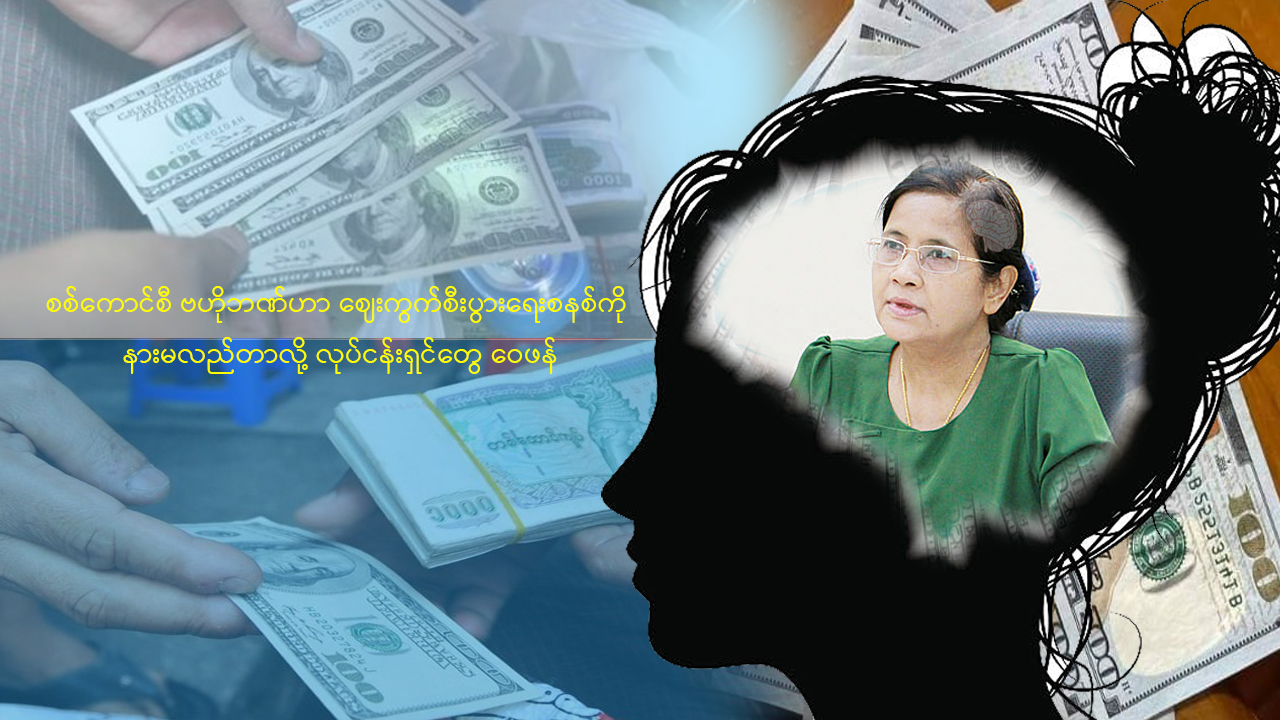Mawlamyine, February (17)
The junta-controlled Central Bank’s statement that exporters, importers, and banks are attempting to raise the foreign exchange rate shows a lack of understanding of the market economic system , and is not theoretically correct, businessmen said.
The Central Bank has suspected that exporters and importers and banks are seeking to raise foreign exchange rates, and the banks will identify and take action against those exporters and importers, according to the statement issued on February 10.
An export and import businessman criticized the statement of the Central Bank of the Military Council as theoretically incorrect and blaming others without understanding the market economic system.
He said that while the exporters and importers are having a hard time in the export and import sectors due to the unnecessary rules set by the military council, the fact that the increase in the foreign exchange rate was due to the actions of the exporters and importers is just an accusation.
An economist opined that the lack of foreign investment and the imbalance between imports and exports had a major impact on the foreign exchange market.

He added, “There is a need to review the unwanted restrictions set by the military council in order to reduce the foreign exchange rate, and the country needs to be calm and peaceful for foreign investment to enter”.
Currently, import and export businessmen are finding it difficult to continue operating their businesses due to the instructions of the Military Council that they must exchange 65 percent of their export income according to the rate set by the Central Bank, and some businessmen are reducing their operations.
The export and import businessmen pointed out that if the military council accuses the export and import businessmen and makes more restrictions, it may become difficult for them to move forward, and if the business stops, the inflow of foreign currency may decrease.
In a report published on January 31 by the World Bank, Myanmar’s ongoing conflicts, severe power outages, and policy changes continue to have a negative impact on Myanmar’s economy, and the per capita income is 13% lower than it was before the COVID-19 pandemic.
News-Than Lwin Times

